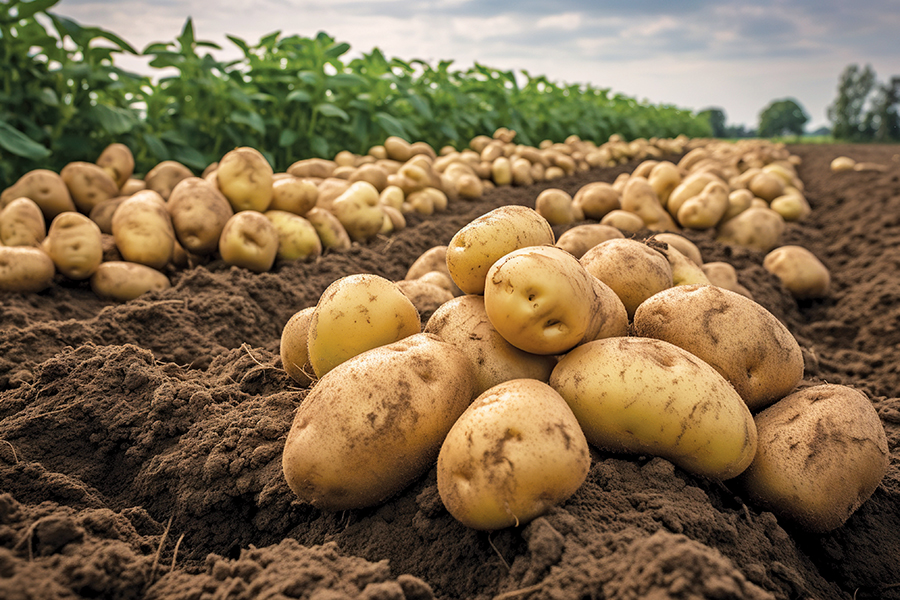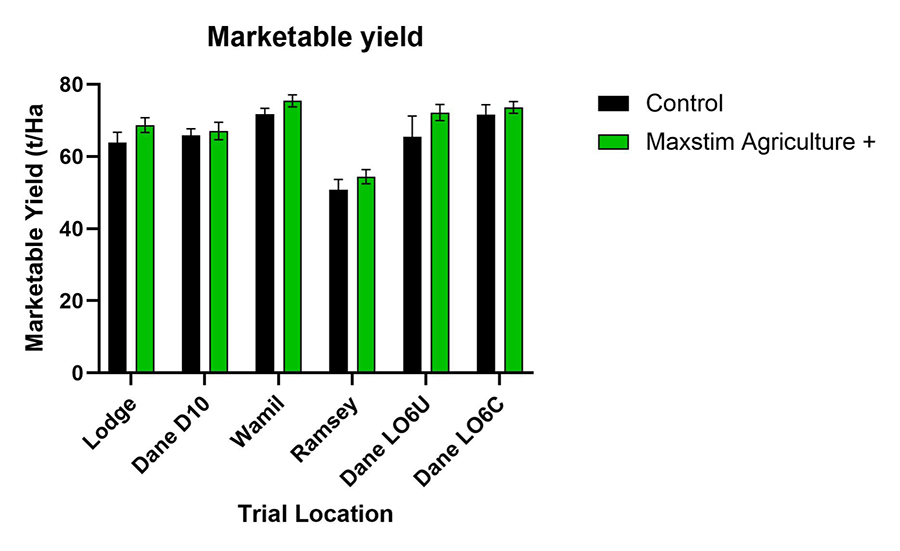£700/ha extra margin in marketable yield for potato growers
28th October 2024
Maxstim recently collaborated on a scientific research paper with Queen’s University Belfast, assessing the impact of its flavonoid-rich, complex biostimulant formula.

Successful potato production currently requires significant levels of inputs, including fertiliser, pesticides and irrigation. However, this will help growers achieve profitable and sustainable productions.
Introducing additional inputs, such as biostimulants, must deliver economic gain for these to be widely adopted, Medsa experts explained.
This can be realised in many different forms, such as reduced use of fertilisers and other agrochemical inputs, more efficient use of water, more efficient land use, increased crop yield, improved crop quality, better disease tolerance, faster recovery from stressful events, shorter time to harvest and market, greater homogeneity of germination and crop, and improved processing efficiencies or a combination of these, the arable experts added.
Recent research by Queens University Belfast explored the use of Maxstim’s complex biostimulants to enhance potato growth and commercial yields. The evidence suggests that a biostimulant based on plant flavonoids can significantly enhance potato growth and yields, offering a promising tool for improving agricultural productivity in a sustainable manner.
The researchers investigated the effects of this biostimulant on various growth parameters, including plant height, leaf area, root development, and overall biomass.
They also measured the impact on tuber yield and quality on Maris Piper potatoes grown in South East England.
Key findings
1. Growth enhancement: The research has shown that the biostimulant significantly improved plant growth, increasing its height, leaf area, and root development. This suggests that Maxstim’s flavonoid-based biostimulant positively influences the physiological processes involved in plant growth.
2. Yield improvement: The application of the biostimulant also led to a notable increase in tuber yield. The potatoes produced were of higher quality, with better commercial characteristics such as size and uniformity.
3. Mechanism of action: The flavonoids in the biostimulant appear to interact with plant hormonal pathways, enhancing nutrient uptake and stress resistance. This contributes to the overall improved growth and yield outcomes, the research confirms.
4. Sustainability: The study also emphasises the potential of using natural plant-based compounds as sustainable agricultural inputs, reducing the reliance on synthetic fertilisers and chemicals.

Find out how Maxstim’s complex biostimulants can enhance your potato crops by visiting the Maxstim website
Read more arable news
